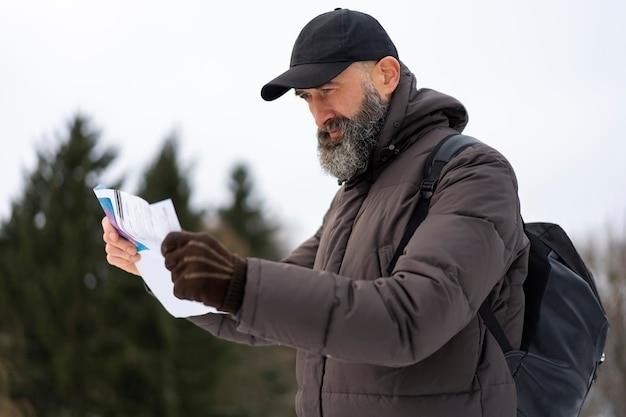Montana Guide License Requirements
To obtain a Montana guide license, applicants must meet specific criteria. These include age and residency stipulations, endorsement from a licensed outfitter, and a current first aid certification. Further details are available from the Montana Fish, Wildlife & Parks.
Age and Residency
Montana guide license applicants must be at least 18 years old. While the provided text mentions a residency requirement for hunting licenses (180 consecutive days), it doesn’t explicitly state a residency requirement for a guide license itself. However, it’s highly probable that proof of residency in Montana, possibly demonstrated through a driver’s license or other official documentation, will be a necessary component of the application process. Further clarification on specific residency stipulations for guide licenses should be sought directly from the Montana Fish, Wildlife & Parks department or relevant licensing authorities. Failure to meet these age and residency criteria will likely result in application rejection.
Endorsement and Recommendation
Securing a Montana guide license often necessitates endorsement and recommendation. The provided text indicates that applicants usually require a recommendation from a currently licensed outfitter in good standing within Montana. This endorsement serves as a validation of the applicant’s qualifications and experience. The specifics of this process, including the criteria for an acceptable recommendation and any exceptions to this requirement, should be verified through the official Montana Fish, Wildlife & Parks (FWP) licensing application materials. Applicants should ensure their chosen endorser meets all necessary criteria and is prepared to provide a strong and accurate recommendation to support their application.
First Aid Certification
A crucial component of the Montana guide license application process involves providing proof of current first aid certification. The provided text highlights the necessity of submitting evidence of a valid and up-to-date basic first aid certification alongside the application materials. This requirement underscores the importance of safety and preparedness in guiding activities. Applicants should ensure their certification is from a recognized and approved provider and that it remains current throughout the application process and licensing period. Failure to provide valid proof of first aid certification will likely result in application rejection. Contact the Montana Fish, Wildlife & Parks department to confirm accepted certifications and any specific requirements.
Experience Requirements
Montana guide license applicants need documented experience. The specifics, including years and types of guided activities, are detailed in further subsections below.
Years of Experience
The minimum years of experience required for a Montana guide license varies depending on the specific type of guiding activity. While some sources mention a minimum of three years’ experience for fishing outfitters, the exact requirement isn’t consistently specified across all license types. Applicants should consult the official Montana Fish, Wildlife & Parks (FWP) website and relevant regulations for precise details on experience requirements related to their intended guiding activities. Failure to meet the minimum experience criteria will result in application rejection. Thorough documentation of all relevant experience, including dates, activities, and client details, is crucial for a successful application. Verifying this experience might involve providing references or other proof of professional guiding work.
Types of Guided Activities
Montana guide licenses encompass a range of outdoor activities. The specific type of guiding activity directly influences the application process and requirements. Applicants must clearly specify the types of activities they intend to guide, such as hunting, fishing, or other outdoor pursuits. The license might not cover all activities universally; separate endorsements or additional licenses may be necessary for certain activities. For example, a license for guiding fishing trips doesn’t automatically qualify someone to guide hunting expeditions. Therefore, precise identification of the intended guiding activities is critical during the application process to ensure compliance with all regulations and to receive the appropriate license. Failure to accurately declare all guided activities could lead to license revocation or legal issues.
Licensing Process
The Montana guide license application process involves submitting the necessary documents and fees. Applicants should review all requirements before starting the process to ensure timely approval. Contact Montana Fish, Wildlife & Parks for detailed instructions.
Application Documents
Applying for a Montana guide license requires a comprehensive set of documents. These typically include, but are not limited to, a completed application form, proof of identity (such as a driver’s license or passport), and verification of your address. You will also need to provide proof of your first aid certification, as well as any relevant experience documentation, which may include letters of recommendation or employment records detailing your guiding experience. Copies of any necessary competency certificates or firearm licenses might also be required. Finally, photographs conforming to the specifications outlined by the Montana Fish, Wildlife & Parks (FWP) are usually a necessary component of the application. It is crucial to ensure all documents are accurate and complete before submission to avoid delays in processing your application. Refer to the FWP website for the most current and detailed list of required documentation.
Fees and Application Submission
The application process for a Montana guide license involves specific fees, which are subject to change. It’s essential to check the Montana Fish, Wildlife & Parks (FWP) website for the most up-to-date fee schedule before submitting your application. This will include the base application fee, and potentially additional charges depending on the type of guide license being sought. Payment methods accepted will also be specified on the FWP website. Applications, along with all required supporting documentation and the applicable fees, should be submitted according to the instructions provided by the FWP. Failure to include all necessary materials or to pay the correct fees may result in delays or rejection of your application. Therefore, meticulous attention to detail is crucial throughout the submission process. Contact the FWP directly if you have questions regarding fees or the submission procedure.

Additional Licenses
Beyond the guide license, Montana often requires hunters and anglers to possess additional licenses, such as hunting and fishing licenses, and conservation licenses. Specific requirements vary.
Hunting and Fishing Licenses
Securing a Montana hunting license necessitates fulfilling specific requirements. These include age verification (often 11 years or older for a base license), residency confirmation through documents like a driver’s license or voter registration, and potentially a conservation license. Non-residents can obtain licenses but face higher fees. Hunting license types vary based on the species being pursued, requiring additional species-specific tags or permits. Detailed information is accessible through the Montana Fish, Wildlife & Parks (FWP) website. FWP manages the licensing process, ensuring compliance with state regulations. It’s crucial to understand the specific licensing needs for your intended hunting activities to avoid penalties. Fishing licenses function similarly, with requirements based on residency and the type of fishing intended.
Conservation Licenses
In Montana, conservation licenses are integral to responsible wildlife management and are often required alongside hunting and fishing licenses. These licenses contribute directly to conservation efforts, supporting habitat preservation, research initiatives, and wildlife protection programs. The fees associated with conservation licenses fund crucial work undertaken by the Montana Fish, Wildlife & Parks (FWP). Purchasing a conservation license demonstrates a commitment to the long-term health of Montana’s diverse wildlife populations and their habitats. These licenses are usually mandatory for residents aged 11 and older who participate in hunting or fishing activities. Specific requirements and associated costs may vary depending on the type of license and the individual’s residency status. The FWP website provides comprehensive details on the types of conservation licenses available, their costs, and how to obtain them.

Residency Requirements for Hunting Licenses
Montana hunting license eligibility hinges on residency status. Proof, such as a driver’s license or voter registration, is needed to establish residency. Non-residents can hunt, but fees differ significantly. Specific residency periods may apply.
Residency Period
While the provided text mentions a 180-day consecutive residency requirement for certain licenses, it doesn’t explicitly state a specific residency period for hunting licenses. The length of time needed to qualify as a resident for hunting license purposes isn’t clearly defined in the given excerpt. Further investigation into Montana Fish, Wildlife & Parks (FWP) regulations is recommended to determine the exact residency duration required. This information is crucial for prospective hunters seeking to obtain a Montana hunting license and should be confirmed through official channels to avoid any discrepancies or complications during the application process. Contacting the FWP directly or consulting their official website is advised for accurate and up-to-date information. Failure to meet the residency requirement could lead to ineligibility for resident hunting licenses and associated benefits.
Proof of Residency
Establishing residency for Montana hunting licenses necessitates providing acceptable documentation. A Montana driver’s license serves as a common and readily accepted form of proof. Alternatively, a voter registration card issued within the state also fulfills this requirement. Other forms of documentation might be acceptable, but these two are explicitly mentioned in the provided text as valid proof. It’s crucial to check the official Montana Fish, Wildlife & Parks (FWP) guidelines for a complete list of accepted documents to ensure your application is processed smoothly. Failure to provide adequate proof could result in delays or rejection of your application. Contacting the FWP directly is advisable for any questions regarding acceptable proof of residency for hunting license applications. The specific requirements may vary, so confirming the current rules is essential before submitting your application.
